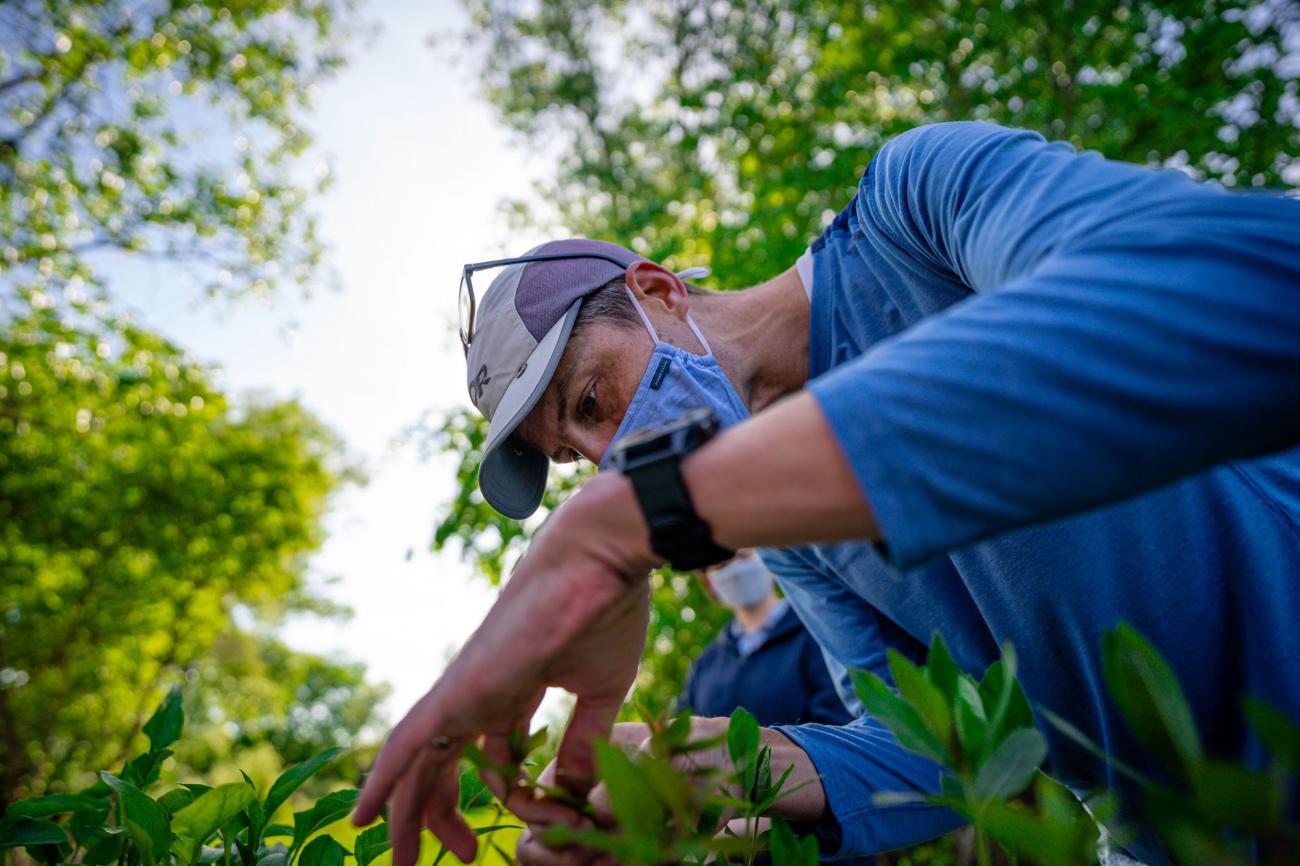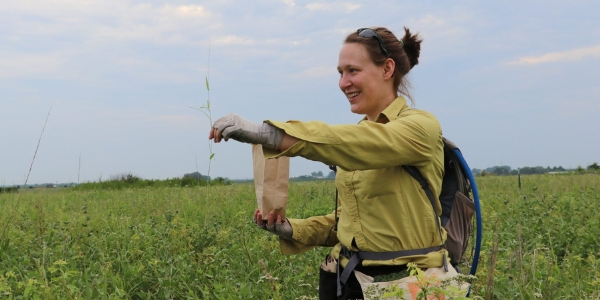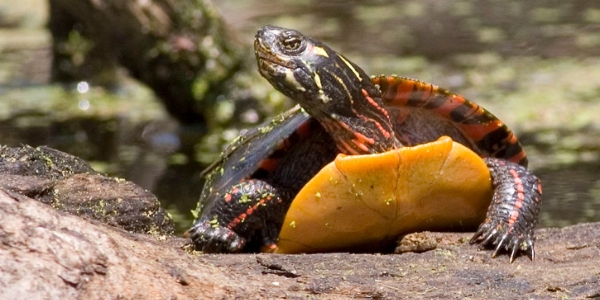Grant helps MSU welcome bees and butterflies to campus
Not only does MSU have 20,000 trees on campus and counting, it’s also becoming a more friendly place for bees, butterflies, and other native pollinators.
Like the rest of Michigan, MSU’s campus is home to various invasive species that can arrive accidentally through international shipping and travel, or intentionally by people importing plants for gardens and landscaping. They jeopardize biodiversity, permanently alter habitats, and can sometimes lead to the extinction of native plants and animals.
The fight against invasive species is a constant one, and MSU is making a concerted effort to tackle it on campus. In collaboration with the College of Natural Science’s Plant Biology Department and the student Fisheries and Wildlife Club, IPF Landscape Services is helping reclaim an area of campus just off Trowbridge Road.
Matthew Bailey, MSU’s Landscape Services manager, and Lars Brudvig, associate professor of plant biology in the College of Natural Science and the Ecology, Evolution, and Behavior Program, applied for a grant from Project Wingspan as part of a larger effort to make campus pollinator friendly.

Project Wingspan is a three-year project through the Pollinator Partnership (pollinator.org) designed to increase the quality, quantity, and connectivity of pollinator habitat across the Midwest and Great Lakes region.
“We’re adding a lot of pollinator gardens on campus,” Bailey said. “We installed a garden north of Shaw Hall with the Sustainable Spartans group, and we’re also restoring the banks of the Red Cedar River to create a pollinator corridor. This Project Wingspan grant is another step on our way towards a bee-friendly campus.”
As a recipient, MSU received sixteen different species of Michigan native seed including black-eyed Susans, buttonbush, foxglove, purple coneflower, milkweed and blazing star wildflower to help reclaim the site as native wildlife habitat.
Read more at Infrastructure Planning and Facilities.



